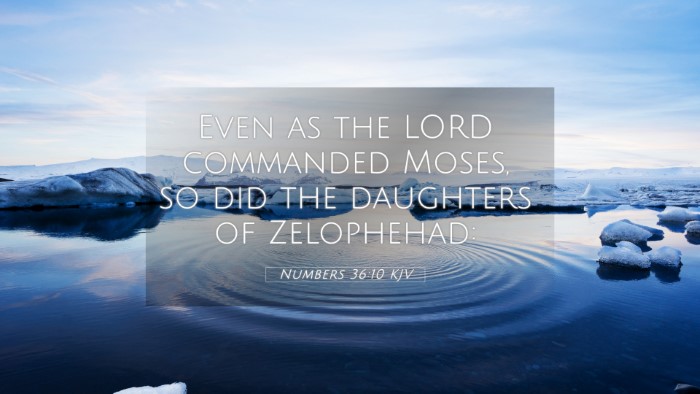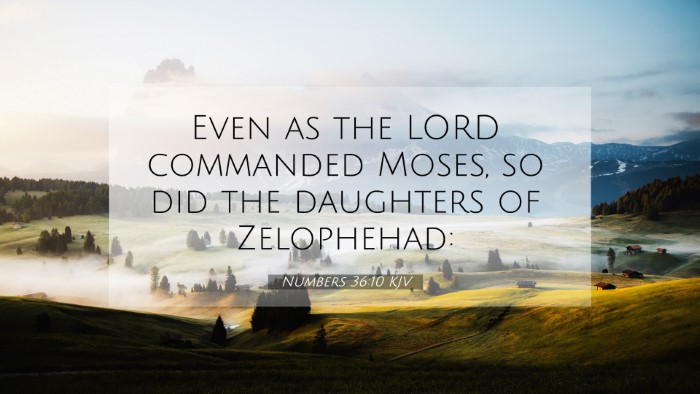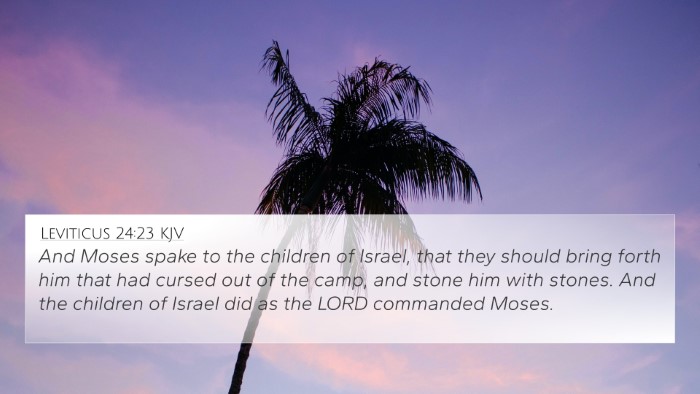Understanding Numbers 36:10
Numbers 36:10 states: "The daughters of Zelophehad did as the LORD commanded Moses." This verse, while brief, encapsulates a significant moment in the narrative of the Israelites' journey and the laws governing inheritance.
Contextual Background
To fully grasp the meaning of Numbers 36:10, it is pivotal to understand its context within the Book of Numbers. This book navigates through the wilderness period following the exodus from Egypt, where Moses receives divine instructions for governing the Israelite community.
- The Daughters of Zelophehad: This family is pivotal because it challenged the patriarchal inheritance laws as they sought to secure their father's legacy.
- Divine Command: Emphasizes obedience to God's directives as essential for the Israelites, highlighting the importance of following God's laws in the community structure.
- Moses' Leadership: Illustrates Moses’ role as an intermediary between God and the Israelites, effectively guiding the community according to divine will.
Insights from Commentaries
Matthew Henry emphasizes the theme of obedience in this verse, noting that the daughters did not waiver in their decision to follow God's command. He points out the significance of their act as a model for faithfulness to God’s instructions.
Albert Barnes adds that this response by the daughters not only fulfilled a legal obligation but also showcased God’s provision for individual rights within the community of Israel. It reflects on God’s justice and care for all, ensuring that women were not to be overlooked in inheritance matters.
Adam Clarke highlights the nature of divine command, underscoring that obedience to God's law is paramount. He also discusses the cultural implications of the daughters retaining their inheritance, suggesting a shift in the understanding of gender roles within the Israelite community.
Bible Verse Cross-References
The connections and themes illustrated in Numbers 36:10 are echoed in several other scripture references, promoting an interconnected understanding of biblical law and God’s justice:
- Numbers 27:1-8: Details Zelophehad's daughters requesting their father's inheritance.
- Deuteronomy 21:15-17: Discusses inheritance laws regarding sons, with implications for daughters as well.
- Galatians 3:28: "There is neither male nor female, for you are all one in Christ Jesus," resonating with the themes of equality before God.
- Luke 18:30: Refers to those leaving their inheritance for the Kingdom, linking to God’s priorities over earthly possessions.
- 1 Peter 3:7: Advises husbands to honor their wives as co-heirs of grace, indicating women’s value in God’s eyes.
- Matthew 5:17-18: Jesus affirms that he has come to fulfill the Law, supporting the continuation of God’s commandments.
- Psalm 47:2: Affirms God as the sovereign leader, underscoring the divine right behind commandments.
Thematic Connections
Numbers 36:10 showcases themes such as:
- Obedience: The act of following divine commandments as a primary virtue.
- Inheritance: Signifying the importance of legacy and family structure in God’s laws.
- Justice: Reflects God’s concern for equitable treatment among His people, including women.
Cross-Referencing Biblical Texts
In conducting a comparative Bible verse analysis, we can draw upon tools for Bible cross-referencing:
- Look at parallel passages, such as those in Deuteronomy, to understand the evolution of laws.
- Utilize a Bible concordance to find original words in the Hebrew text, yielding deeper insights.
- Engage in cross-reference Bible study methods to uncover connections to the New Testament teachings on equality and inheritance.
Conclusion
Numbers 36:10 serves as a testament to obedience and the evolving understanding of community inheritance as established in God's covenant with Israel. By employing cross-referencing techniques and examining related scriptures, one can delve deeper into the wealth of insight provided by the interconnected narrative of the Bible. Thus, the meaningful exploration of this verse can greatly enhance one’s interpretation and understanding, revealing the richness of God's law as applicable in both ancient times and contemporary Christian teachings.






